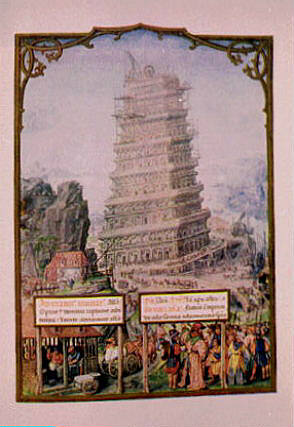EC 442 -- History of Economic
Thought
Spring, 1999
MW 2- 3:15 PM in CSS-226
Office: Cornell Social Sciences Bldg. 259
Phone 646-2509 Fax 646-2485
ESCHUTZ@ROLLINS.EDU
 This course will survey the historical development
of economic thought by means of a selection of readings from some
of the original "great works" in our field. The purpose
of the course is to help you broaden and deepen your understanding
of economic thinking by exploring the historical background from
which today's economic "knowledge" has arisen. In particular,
the course will (1) consider some of the variety of views
that, for different people at different times in history, have
constituted economic "knowledge"; (2) discuss some of
the historical reasons each of these different views arose;
and (3) show how they have contended with each other over
time -- that is, what kinds of "schools of thought"
they have engendered, what sorts of changes they have undergone,
how some views have come to predominate over others, and so forth.
This course fulfills the "R", or "Writing Reinforcement",
General Education Requirement for graduation. Moreover, by focusing
on original works of great economists of the past this course
will acquaint you with some of the best literature in the
English language, as well as with the nature of economics as a
practice, i.e., as a process of writing analyses
and polemics in order to improve people's understanding and influence
their thinking on issues.
This course will survey the historical development
of economic thought by means of a selection of readings from some
of the original "great works" in our field. The purpose
of the course is to help you broaden and deepen your understanding
of economic thinking by exploring the historical background from
which today's economic "knowledge" has arisen. In particular,
the course will (1) consider some of the variety of views
that, for different people at different times in history, have
constituted economic "knowledge"; (2) discuss some of
the historical reasons each of these different views arose;
and (3) show how they have contended with each other over
time -- that is, what kinds of "schools of thought"
they have engendered, what sorts of changes they have undergone,
how some views have come to predominate over others, and so forth.
This course fulfills the "R", or "Writing Reinforcement",
General Education Requirement for graduation. Moreover, by focusing
on original works of great economists of the past this course
will acquaint you with some of the best literature in the
English language, as well as with the nature of economics as a
practice, i.e., as a process of writing analyses
and polemics in order to improve people's understanding and influence
their thinking on issues.
READINGS:
Historical survey: Daniel Fusfeld, The Age of the Economist
(latest ed).
Main selections, in order:
Adam Smith, The Wealth of Nations (selections).
Karl Marx & Frederick Engels, The Communist Manifesto;
Marx, "Wage Labor & Capital".
John Stuart Mill, On Socialism.
Thorstein Veblen, Theory of the Leisure Class (selections).
Charlotte Perkins Gilman, Women and Economics (selections).
John Maynard Keynes, Essays in Persuasion (selections).
Most of the above are available in the textbook section at the
Rollins Bookstore; the rest will be handed out in class or made
available on reserve in the library.
One ADDITIONAL significant work of a major post-WWII economist
will also be required (e.g., two significant articles or chapters
of a book by an author such as Friedman, Galbraith, Samuelson,
Robinson, Bowles, Lucas... ) -- see below.
WORK, GRADES, ETC.:
Your course grades will be determined by the quality and diligence
of your work on comprehending the subject matter, and on
the diligence of your work on writing.
Specifically, you will be graded on the following, to be explained
in class:
(1) Five (5) short papers, early and final
drafts, the latter to be turned in as scheduled below.
(2) Two in-class exams (as scheduled below),
including the economics major "exit exam".
(3) Class participation, specifically --
(a) leading/facilitating class discussion
on current readings two-to-four times during the semester;
(b) participating in discussions led/facilitated by your
peers; and
(c) presenting briefly your reactions on a
short work of a post-WWII economist of your own choosing, as
scheduled below.
(4) Miscellaneous assignments, some in class (including
unannounced in-class quizzes), some as homework, peer writing
reviews, etc.
(5) Writing regularly (1/2-page to 1-page per week)
in an "electronic" group journal on the web.
(6) Using the consulting services of the Writing
Center.

